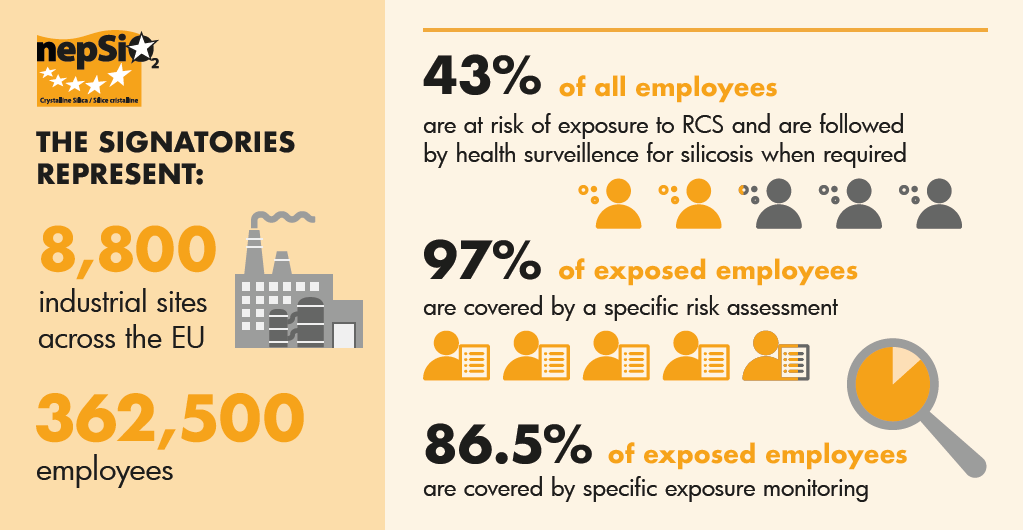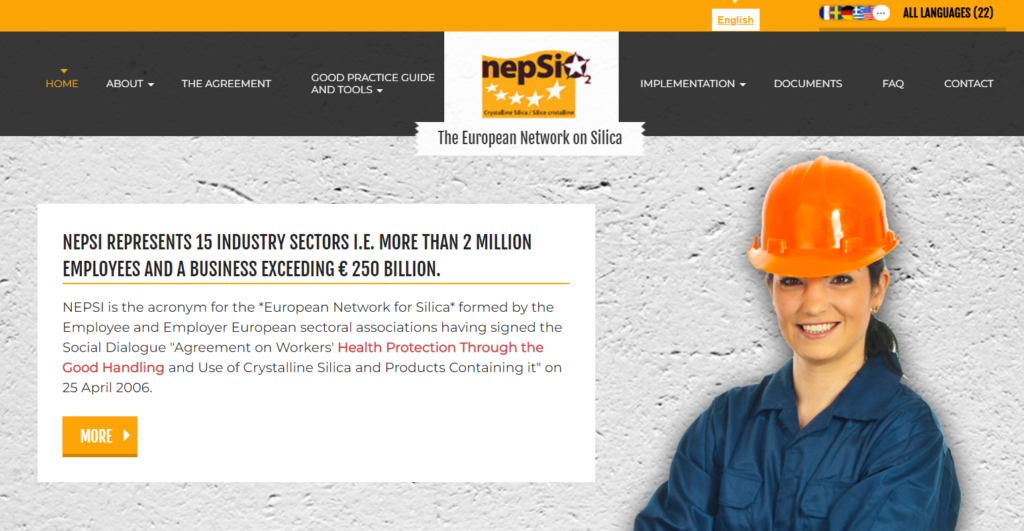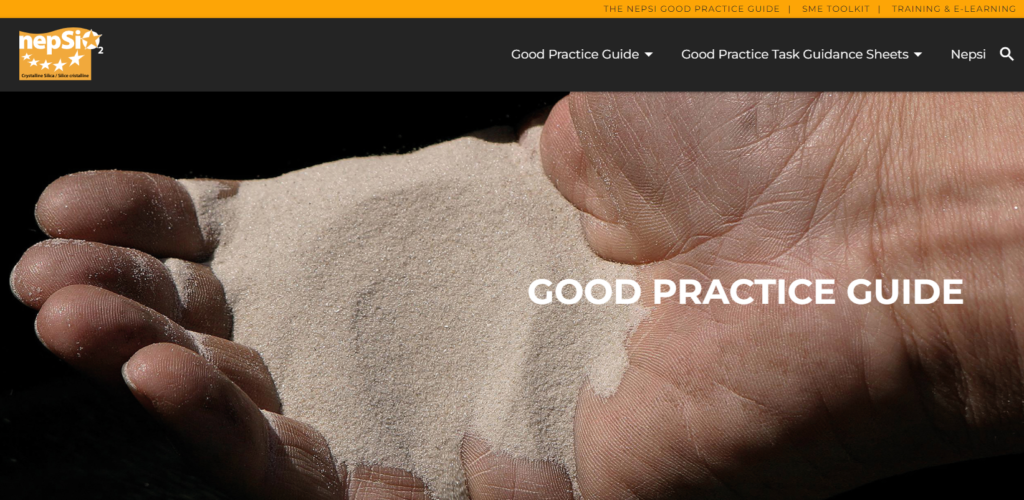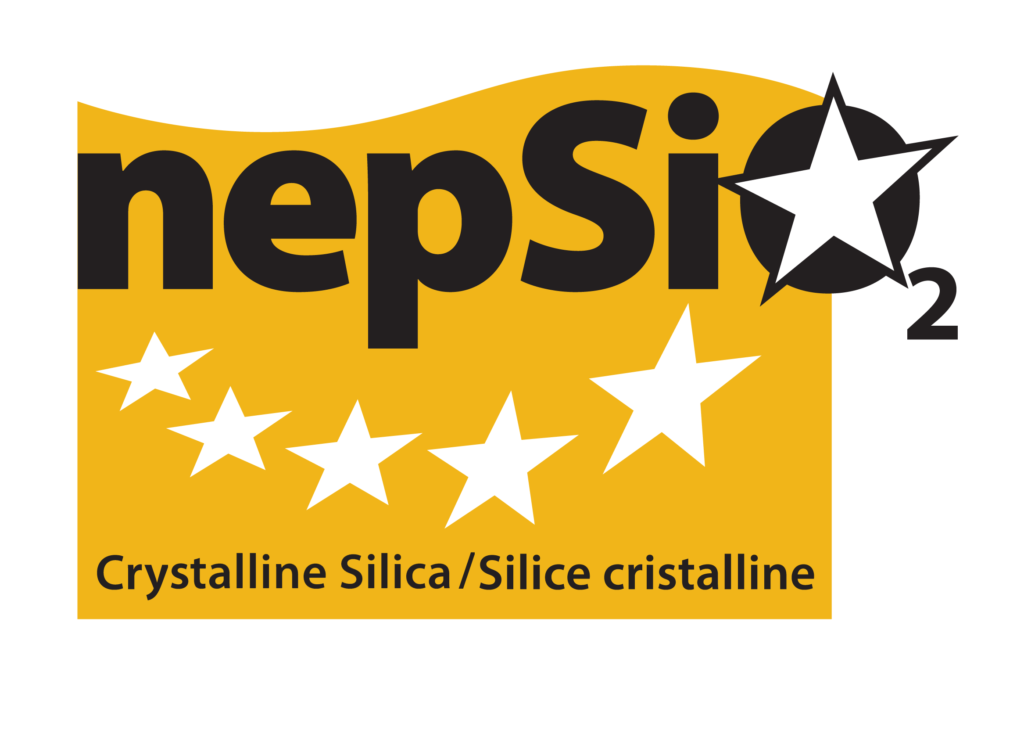NEPSI
NEPSI is the first European multi-sectoral social dialogue agreement of its kind and covers the safety of more than two million employees from 19 industry sectors.
In 2006, IMA-Europe brought together a wide range of industrial sectors and labour unions concerned by occupational exposure to respirable crystalline silica (RCS). Together they founded NEPSI (the European Network on Silica) to implement good practices in the field and reduce exposure to RCS.

At the cornerstone of the agreement is a risk-assessment procedure to help determine which measures and good practices are required to improve protection for workers. To this end, a set of detailed task sheets corresponding to the specific industrial settings encountered by the signatory industries was drafted and compiled into a good practice guide annexed to the agreement. This also provides recommendations on dust monitoring, health surveillance and training.
In 2018, works involving exposure to RCS generated by a work process were included in the European Carcinogens and Mutagens at Work Directive (Directive 2017/2398) with a binding occupational exposure limit value of 0.1 mg/m³.3. In the Directive, the European Commission recognises that NEPSI good practices are valuable and necessary instruments to complement regulatory measures and support the effective implementation of limit values.
In 2019 the European Commission granted a substantial budget to update the good practice guide and develop guidance and training tools for new generations of workers and micro and small enterprises. These tools are now available on the revamped NEPSI website.

In addition to the new guide, the University of Utrecht’s Institute of Risk Assessments (IRAS) has helped develop a new methodology to measure RCS at sites according to the best standards.
In 2020, NEPSI signatories reported on the key performance indicators (KPIs) they use to measure the implementation of NEPSI measures, all of which show improvement. The improved KPIs are the results of continuous work by the NEPSI partners and demonstrate that the signatories continue to strengthen their commitments to good practices in order to protect their employees and minimise exposure to respirable crystalline silica.

